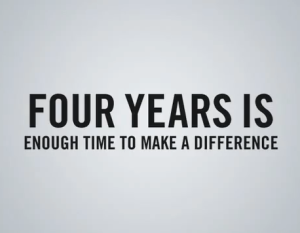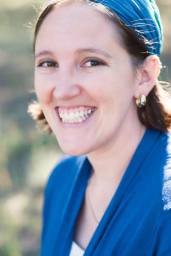
Lily Montagu – Post by Jessica
One of the nice things about being back in school, particularly in grad school, is that there is often the thrill of discovery. With the Non-Profit Management side of my degree, it’s often about some new technique or approach that I’m putting in my “bag of tricks” for later use. In the Jewish Studies program, it’s generally more intellectual, the kind of thing that’s like “wow, the world is more interesting than I thought.”
Those moments make all the late nights worth it. Because I was taking a LOT of Jewish Studies last semester, I needed paper topics. I was floundering for one in particular, until I asked a friend what he thought. He suggested someone named Lily Montagu. I needed to analyze a primary source, and apparently, she had written a memoir. As it turned out, she had written a lot of things.
Born in 1873 to a very wealthy Orthodox family, Lily decided early on that Orthodox Judaism as it currently stood had very little to offer her as a woman. With little access to religious texts, yet still with an interest in a personal religious experience, she began to create religious services that spoke to her, first in the form of a religious service ostensibly for children (although often attended by women), and then through services held by the Jewish Religious Union, who held additional services on Shabbat afternoon. For a long time, she continued to try to work within the system, but eventually, it became clear that they were outside the realm of Orthodoxy, and began, in earnest, to try to create a movement. Through her alliance with Claude Montefiore, they began to form congregations.
This was a very painful break for her personally, since her father rejected the idea of reform, and in his will, forbade her from using the money towards the cause. As the movement grew, however, she remained heavily involved, helping to create the World Union of Progressive Judaism (WUPJ), and even housing their headquarters in her home for many years, until they were moved to New York. She also regularly led services and spoke from the pulpit, with her address at the WUPJ conference in Berlin in 1928 the first time a woman had spoken from the pulpit in Germany. To this day, Liberal Judaism, the new name of the Jewish Religious Union, is still housed in The Montagu Center.
I found her story fascinating in general – but there were two aspects that made it even more interesting. First, the reasons she left Orthodoxy, and second, that her story is largely unknown and unstudied. Lily was given a secular education comparable to the non-Jews around her, while at the same time being denied access to Jewish texts. She saw the difference in what was offered to her brothers, and felt the injustice. This not only meant that she felt isolated from Judaism, but that her ways of thinking about religion were shaped by secular study rather than Jewish knowledge. Her language when discussing religion uses secular imagery more often than not; religion was used as a tool for personalizing secular values. That many women and men found this vision compelling speaks to the fact that this kind of education was common. But it also meant that, aside from her personal feelings of connection to Judaism, she was preaching a version of Judaism that was not compatible with Orthodoxy. It’s impossible to know what Lily would have done with a more rigorous Jewish education.
Still, why her story is largely unknown, even among liberal and progressive branches of Judaism? Ellen Umansky, until recently the only scholar who had studied her in depth, thinks that it might largely be the “fault” of Lily herself. Certain of her activities, such as preaching, were public. But many others, like her efforts to start the JRU and WUPJ were behind the scenes, and Lily deliberately described her own participation as non-essential. Umansky’s research, however, has unearthed evidence that she was often entirely instrumental in these efforts, both doing ground work and providing or gaining access to funding. That Lily’s attitude played better for the historians of the time is debatable – how would they have reacted if she had taken credit where the credit was due? Would there have been greater pushback? Or would it have just made it easier for historians of our time to understand where she fit in? The fact remains that, having grown up in a community connected to hers (both in South Africa and in Illinois), I had heard of Leo Baeck and of Samuel Montefiore, but not of Lily Montagu.
The little hidden gems of history. And hopefully, with a new book coming out about her, she’ll be a little less hidden than before.








